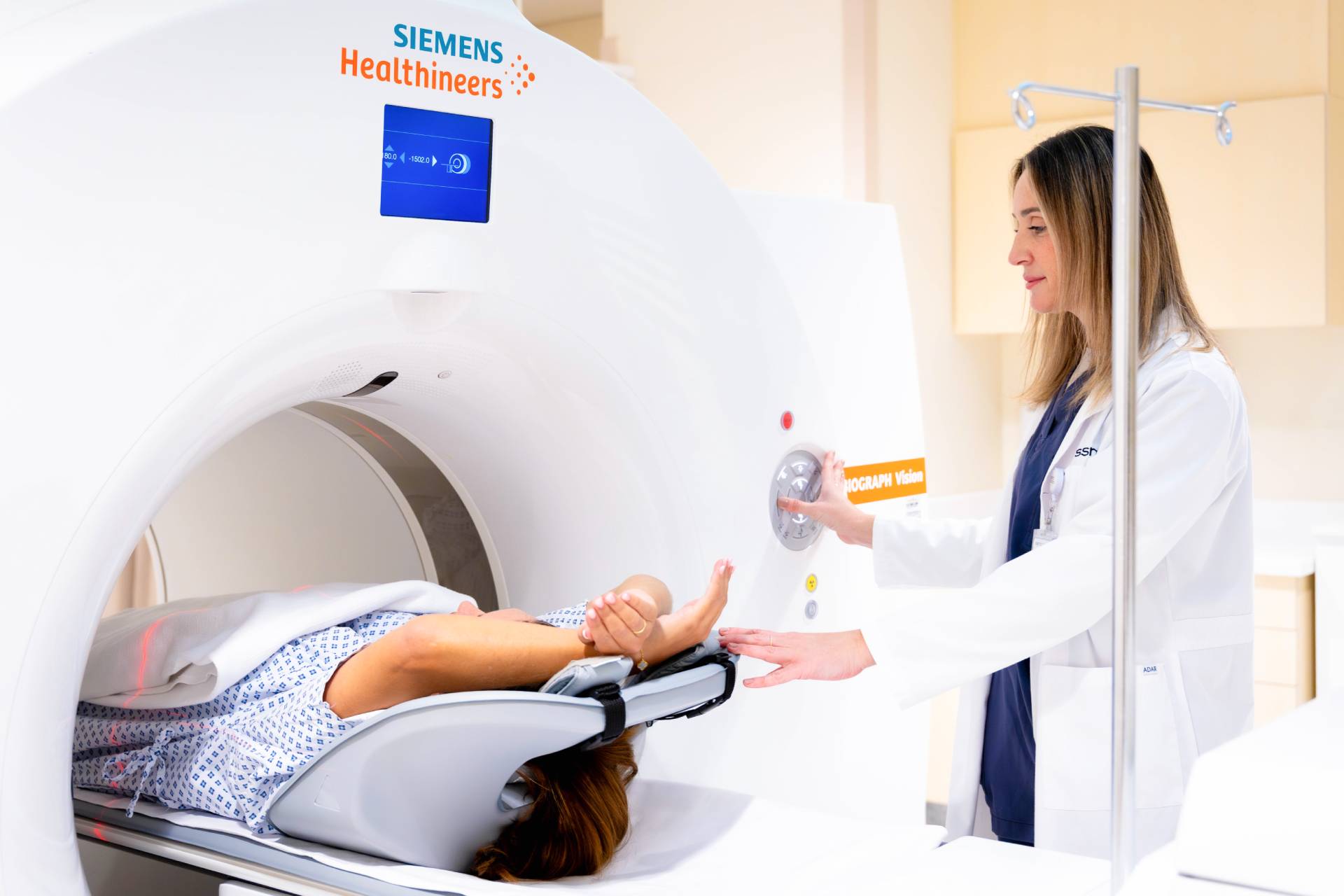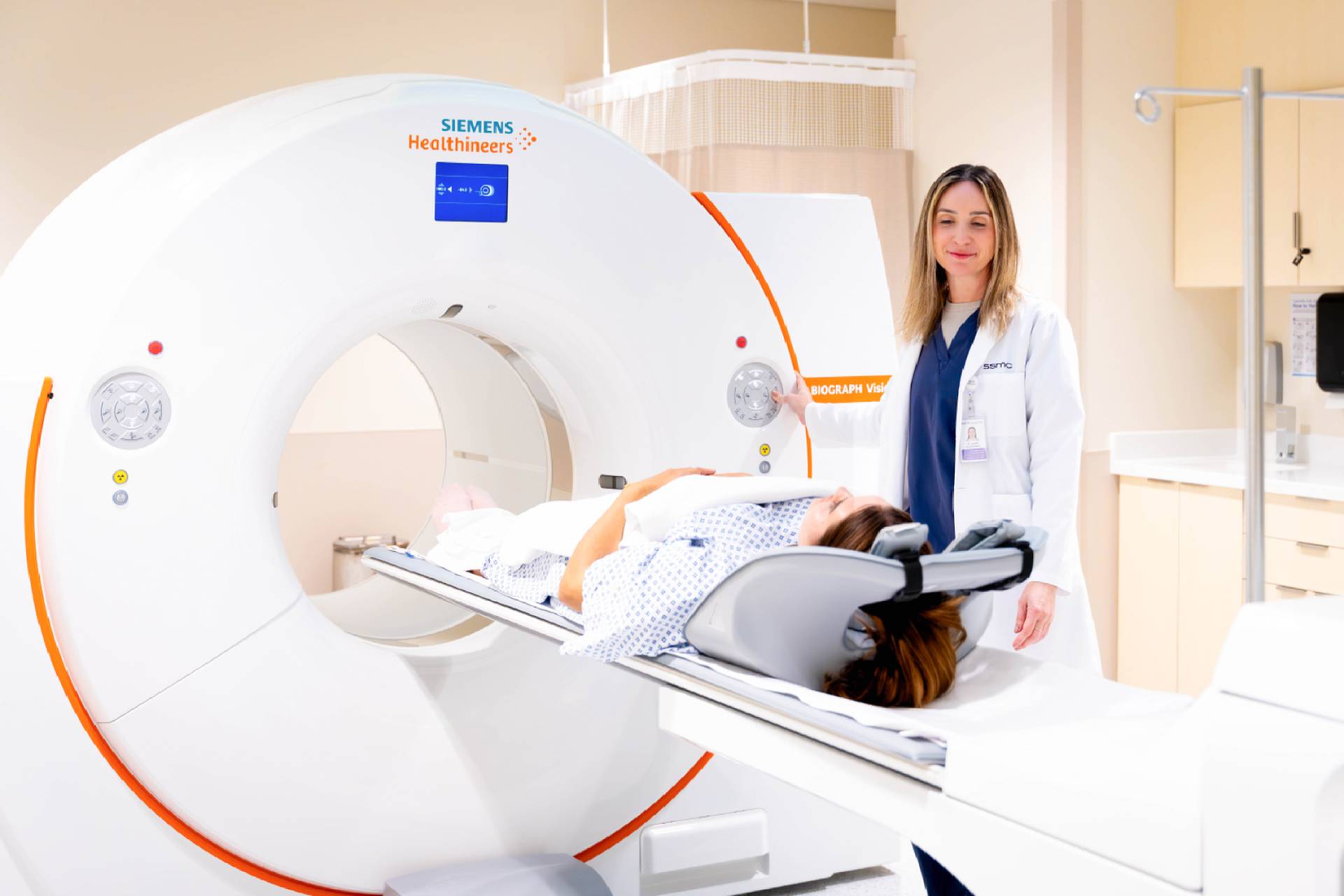Positron Emission Tomography (PET) Scan
A
positron emission tomography (PET) scan is a sophisticated imaging test that plays a crucial role in
assessing the functionality of various tissues and organs within the body. This non-invasive procedure is particularly
valuable for detecting tumors and providing a clearer understanding of various diseases and conditions.
What is a PET Scan?
PET scans utilize a small amount of radioactive material, known as a tracer, which can be
injected into
the patient's body. Depending on the specific tracer used, patients may also be asked to swallow or inhale it.
This
tracer emits positrons, which are detected by the PET scanner to create detailed images of the body's internal
processes.
How is the Test Conducted?
The PET scan is a
painless procedure that typically involves the following steps:
- Preparation: Before the scan, patients may need to avoid certain foods or medications
that
could interfere with the results.
- Tracer Administration: A nurse will administer the radioactive tracer through an
intravenous
(IV) line, or in some cases, via swallowing or inhalation.
- Waiting Period: After the tracer is introduced, there is usually a waiting period of
about
30-60 minutes to allow the substance to circulate and accumulate in the targeted tissues.
- Scanning Process: The patient lies very still on a narrow, padded table that slides
into the
PET scanner. The scanning process typically lasts around 20-30 minutes, although patients should expect
to be in
the imaging department for up to 60 minutes total due to preparation and monitoring.
Monitoring During the Scan
Throughout the procedure, a nurse closely monitors the patient to ensure comfort and safety. The patient must remain
still during scanning to obtain clear images; any movement can result in blurred images and inaccurate results.
In summary, a PET scan is an essential diagnostic tool that helps healthcare professionals visualize how organs and
tissues are functioning in real-time. It is particularly effective for identifying tumors and assessing various health
conditions, thus enhancing patient care and treatment planning.
Why choose SSMC?
The Division of Paediatric Surgery & Paediatric Urology at Sheikh Shakhbout Medical City (SSMC), Abu Dhabi, hosts a
multidisciplinary team comprising American and British board-certified surgeons equipped with the expertise to treat and
manage a broad spectrum of paediatric surgical and urological conditions. State-of-the-art paediatric operating rooms,
alongside advanced minimally invasive suites, provide the perfect atmosphere for optimal surgical care of our paediatric
and neonatal patients. They are equipped with highly advanced, high-definition imaging technology, advanced image
capture and routing capabilities in an ergonomically efficient environment. SSMC offers one of the region’s most
advanced Neonatal & Paediatric Intensive Care units, with a highly qualified team of health professionals capable of
providing premium quality care. Our paediatrics surgeons provide a range of surgical and urological services using
minimally invasive approaches, including:
- General paediatric surgery
- Hepatobiliary paediatric surgery
- Pancreatic surgery
- Hernia repair
- Paediatric thoracic surgery, including video-assisted thoracoscopic surgery (VATS)
- Neonatal surgery
- Paediatric urology
- Diagnostic and therapeutic upper and lower gastrointestinal endoscopies (procedure to view the body internally)
- Diagnostic and therapeutic bronchoscopies (inspection of the lungs and air passages)
- Paediatric vascular access
- Appendectomy (removal of the appendix)
- Fundoplication (surgery to treat stomach acid reflux)
- Ureteric reimplantation (surgery of the ureters)
- Lung resections (partial or full removal of the lung)
- Pyeloplasty (surgical reconstruction of the kidney)
- Endourology (inspection and surgery of the urinary tract)
As we continue to strive to provide the best of care to our patients, our paediatric surgical team works closely in a
multidisciplinary approach with other divisions, including Paediatrics, Neonatology, Radiology, and other relevant
departments, to provide nationally and regionally renowned care in the management of complex paediatrics surgical
conditions.
Book Appointment
800 7762
Book Appointment
800 7762



